Exparel: a New, Long-lasting Local Anesthetic that Decreases Postoperative Pain after Hip or Knee Replacement Surgery
NOTE: Please feel free to read this blog however as of late 2019 Dr. Leone has updated his pain-management protocol which he explains in his latest blog. Click here.
As more and more people have hip and knee replacement surgery, postoperative pain management treatments and drugs, as well as prostheses and surgical techniques, continue to be refined. New and longer-lasting drugs with decreased side effects are being developed to help patients.
In a previous blog, Managing Postoperative Pain, I discussed my philosophy and the approach we take at the Leone Center for Orthopedic care to decrease post-operative pain. Our focus and emphasis is to stay ahead of the pain curve by eliminating it before it starts. We preempt and diminish pain by using a multi-modal approach with less emphasis on narcotics, which historically has been the central pillar to treat post-operative pain. With this refined multi-modal approach, we’ve been able to avoid many of the complications which plague patients post-operatively, including nausea, vomiting, constipation, confusion, and “feeling out of sorts,” just to name a few. Because of our emphasis on managing pain, especially in the early post-operative period, patients mobilize sooner, which is safer for their overall health. Their physical therapy also is facilitated which is critical for a full and optimal recovery.
One aspect of the approach I use to prevent and decrease pain after surgery is to infiltrate the tissues around the hip or knee replacement with a solution that includes a local anesthetic called bupivacaine (Marcaine), morphine sulphate (a narcotic), and Toradol (an intravenous NSAID). This combination of medications has resulted in remarkably decreased pain for patients during the early post-operative period.
Bupivacaine is a time-honored local anesthetic, which is both effective and predicable, but its anesthetic effect is not long-lasting. When combined with epinephrine, which causes the blood vessels in that area to constrict, and the other agents, patients experience much less pain for the first 18 to 24 hours after surgery.
Recently, I added a new pain medication called Exparel to the pain-management “cocktail” I use to treat my patients. Exparel is injected separately into the tissues surrounding the knee or hip during surgery and its effects are much longer-lasting.
The benefits of Exparel are based on a new drug delivery system called DepoFoam. This new technology encapsulates the bupivacaine molecule in a fat delivery (liposomal) system that then breaks down slowly in the body and allows the extended release of the bupivacaine over 48 to 96 hours. Because the fatty molecule that surrounds the bupivacaine doesn’t start breaking down until approximately 8 hours after it is injected and only then begins to release the drug, Exparel keeps working when the other medications begin to wear off. We continue to inject the other medications as well, which have an immediate effect. This medication protocol is called “bridging” and is one of the reasons we use varied medications with different half lives (the time when half the medicine injected has broken down and no longer is able to prevent pain). Comparable to a chain reaction, when one medication stops, another already is working to quell the pain.
Since adding Exparel to my multi-modal pain delivery system, it has been a game changer, especially for patients who have had knee replacement surgery. The truth is, for most people knee replacement surgery hurts more than a hip replacement. By adding Exparel and combining it with the other medications and treatments, post-operative total knee replacement patients routinely tell me they essentially have no pain for the first 24 to 48 hours, which is similar to what my total hip replacement patients have been reporting for some time. These results simply are fantastic. I also add Exparel with equally good results to the injections for some total hip replacement patients who have special needs or concerns; however, most total hip replacement patients simply don’t need it.
By adding Exparel injections to my multi-modal regimen, I’ve also eliminated the need for and associated risks of femoral nerve blocks, with or without pumps and catheters. This has made our pain-management approach simpler, more consistent, and most importantly, safer. When I visit my total knee replacement patients the morning after surgery, they now routinely are moving their knees and eager to begin walking. I no longer have to delay a patient’s first therapy session or request that morning therapy be confined to “in-bed exercise only,” because a femoral nerve block might temporarily have anesthetized the motor component, not just sensory as desired.
The art for me is anticipating when the Exparel will wear off enough to cause my patients to feel pain and then pre-empting that pain with other medications and modalities.
Also very encouraging is that both my total and partial knee replacement patients are going home a full day sooner than before because they feel so well. The best therapy in the world is to be back in your own home and as a surgeon I do everything possible to make that happen as quickly as possible.

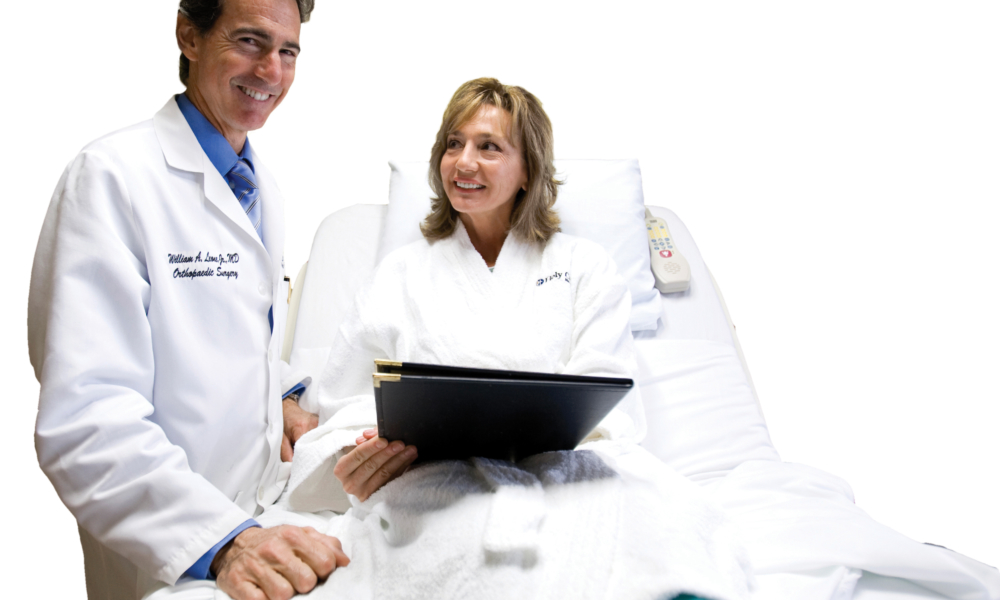
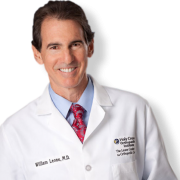

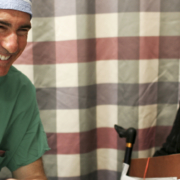
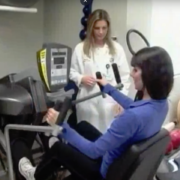
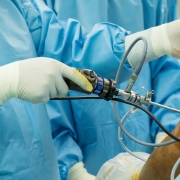
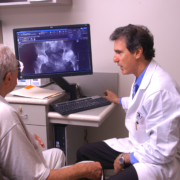

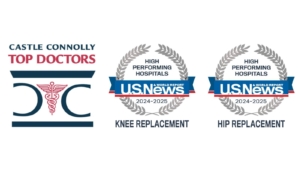


Last week (9 days ago, Aug 19th, 2014) my hip was replaced (THR) and Exparel was used (what else I am not sure) at closing.
I awoke after with 0 pain. Walked 200′ with only minimal use of a cane, down & up a flight of stairs (better than pre-op by a large margin), was allowed to walk out of the hospital that day (outpatient THR).
Went home and experience NO PAIN until at least after the 72 hour mark. By that time, my hip was pretty much fine on it’s own.
At about 85 hours I sneezed, receiving a 1/2 second jolt of pain under the incision which might have been a level 4-6 (can’t say as it was so short and surprising).
Spent the next ten minutes figuring out how to AVOID SNEEZING again 🙂 (since most people sneezed in ‘sets’.)
That was literally the only pain I experience during the whole thing. (With an anterior approach THR my thigh/quad was stiff and a little sore when standing up or sitting down, but never actually painful, i.e. about a 1)
See my recovery thread on BoneSmart for lots of details: http://bonesmart.org/forum/threads/anterior-th-aug-19-2014-home-same-day.25995
Herb, I’m so pleased you have had such a good experience following THR. I hope your recovery continues smoothly and without pain. Most folks experience a huge initial benefit from a “cocktail” of special medications, including Exparel, which are injected into the local surrounding tissues. I’m particularly pleased that after the first 48-72 hours you still were so comfortable. This is often the critical time when other medications need to be added, anticipating the Exparel wearing off.
Thank you,
Dr. Leone
I had a hemorrhoidectomy on Friday and today is Sunday. I have experienced no pain and cannot believe I am able to walk around the house, take sits baths etc without any pain. I expect with my first bm there will be some discomfort but sofar this is amazing. My doctor is absolutely the best I have ever seen . I put this surgery off for 20 years because of the nightmare stories I have heard about. If you are about to have surgery ask your doctor about this medication